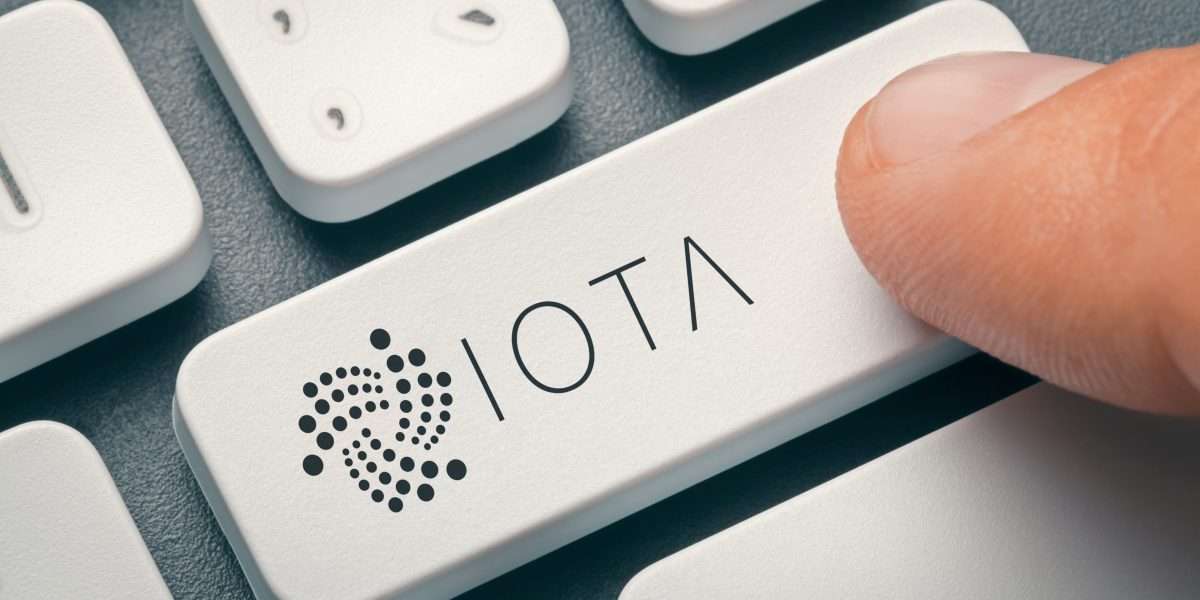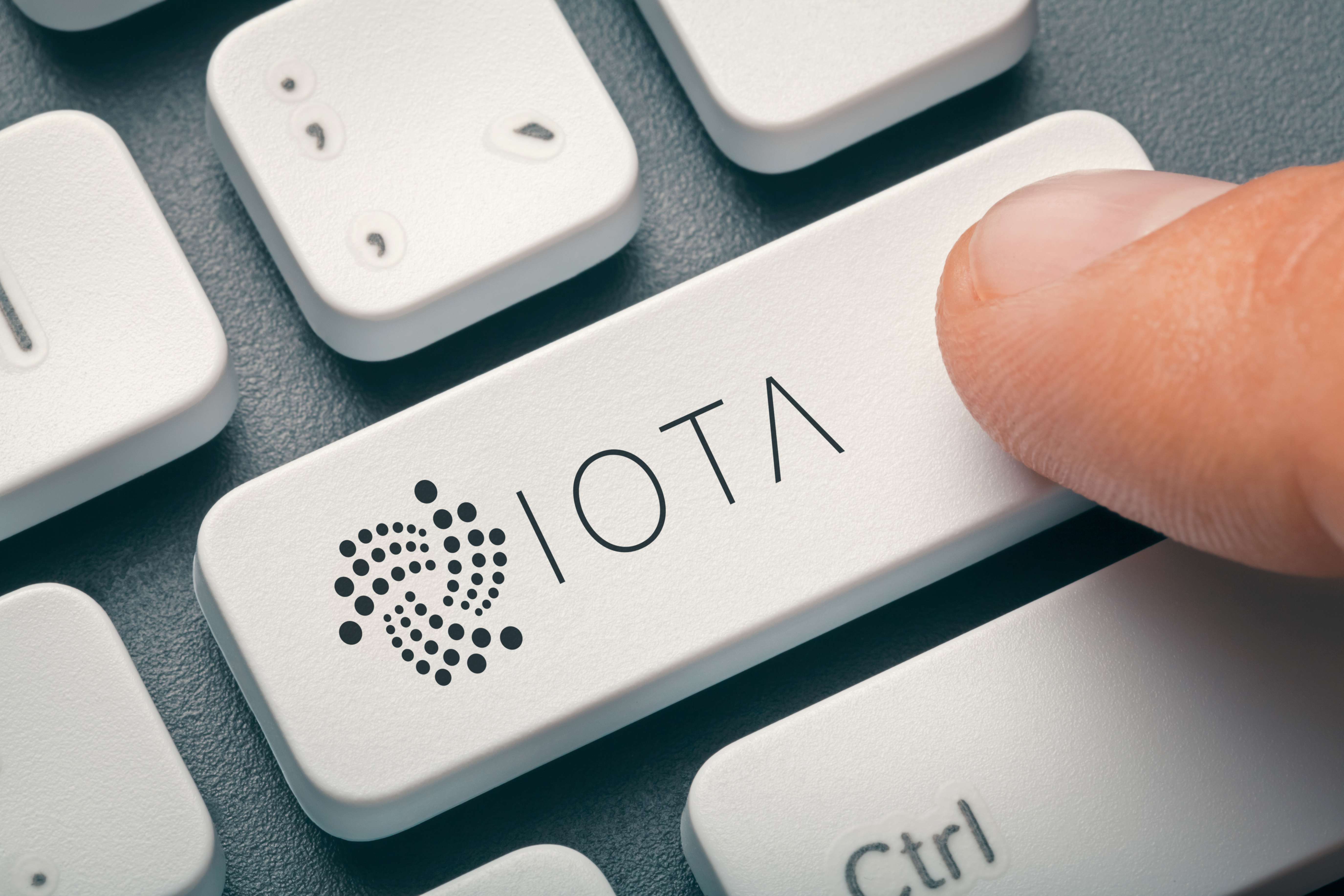
Source: Morrowind – Shutterstock
- The IOTA blockchain network caters to the use cases across multiple industry applications in a decentralized manner.
- Below are six of such major applications where IOTA can contribute towards making industries more efficient.
The IOTA Foundation has been working on several projects with real-world applications that seek to leverage the power of IOTA’s distributed ledger technology for different use cases. Also, the IOTA blockchain has the ability to cater to real-world use cases across industries, right from technology to the energy sector. Let’s take a look at all those industries where the IOTA blockchain has a major role to play.
1. Internet of Thigs (IoT)
The IOTA blockchain finds a perfect use-case in the IOT applications specifically designed to enable secure and efficient data transfers and micro-transactions among billions of other connected devices. Thus, IOTA can contribute to better resource management and improved automation in industries.
2. Supply Chain Management
The IOTA blockchain can help in offering greater traceability and transparency in the supply chain. It can offer end-to-end tracking of goods right from the production stage to consumption using tamper-proof data. Furthermore, IOTA can also help in reducing fraud, improve product safety, and simultaneously ensure the ethical sourcing of all materials within the supply chain.
3. Smart City
The IOTA blockchain can play a crucial role in building smarter and more efficient cities by facilitating data exchange between urban systems like waste management, traffic, and energy efficiency. Thus, IOTA can contribute to effective town planning and further to a greater cause of improving public services, and enhancing the quality of life.
4. Digital identity and Intellectual Property
This is one area where the IOTA Foundation has been putting a great focus recently. The IOTA blockchain can contribute to creating secure, decentralized digital identities while empowering users to control their personal data as well as reduce the risk of identity theft or fraud. This way, IOTA will ensure equitable access to education, healthcare, and financial services.
Similarly, the IOTA blockchain can also provide a decentralized platform for registering and tracking intellectual property including patents, trademarks, and copyrights. Besides, it can also help in protecting creators’ rights, facilitating royalty payments, and much more.
5. Peer to Peer Energy Trading
The IOTA blockchain network can host decentralized energy grids that allow users to trade excess energy either with their neighbors or sell it back to the grid. Japanese multinational Toshiba is already working to facilitate P2P energy trading over the IOTA blockchain. Using IOTA, energy providers can optimize energy distribution, reduce waste, as well promote the use of renewable energy.
No spam, no lies, only insights. You can unsubscribe at any time.
6. Disaster Response
The IOTA blockchain can help in coordinating disaster relief efforts by offering a decentralized platform for the sharing of real-time resources and information. Thus, IOTA can contribute towards efficient ways of aid distribution in natural disasters or other humanitarian crises.
Similarly, IOTA can also contribute to environmental needs like creating a decentralized network of sensors or enabling real-time monitoring of pollution and other environmental factors.
Crypto News Flash does not endorse and is not responsible for or liable for any content, accuracy, quality, advertising, products, or other materials on this page. Readers should do their own research before taking any actions related to cryptocurrencies. Crypto News Flash is not responsible, directly or indirectly, for any damage or loss caused or alleged to be caused by or in connection with the use of or reliance on any content, goods, or services mentioned.
Read More: www.crypto-news-flash.com









 Bitcoin
Bitcoin  Ethereum
Ethereum  Tether
Tether  XRP
XRP  Solana
Solana  USDC
USDC  Dogecoin
Dogecoin  Cardano
Cardano  TRON
TRON  Lido Staked Ether
Lido Staked Ether  Wrapped Bitcoin
Wrapped Bitcoin  Sui
Sui  Wrapped stETH
Wrapped stETH  Chainlink
Chainlink  Avalanche
Avalanche  Hyperliquid
Hyperliquid  Stellar
Stellar  Shiba Inu
Shiba Inu  LEO Token
LEO Token  Hedera
Hedera  Bitcoin Cash
Bitcoin Cash  Toncoin
Toncoin  Litecoin
Litecoin  USDS
USDS  Polkadot
Polkadot  WETH
WETH  Monero
Monero  Bitget Token
Bitget Token  Binance Bridged USDT (BNB Smart Chain)
Binance Bridged USDT (BNB Smart Chain)  Wrapped eETH
Wrapped eETH  Pepe
Pepe  Pi Network
Pi Network  Ethena USDe
Ethena USDe  Coinbase Wrapped BTC
Coinbase Wrapped BTC  WhiteBIT Coin
WhiteBIT Coin  Dai
Dai  Bittensor
Bittensor  Uniswap
Uniswap  Aave
Aave  NEAR Protocol
NEAR Protocol  OKB
OKB  Aptos
Aptos  Jito Staked SOL
Jito Staked SOL  BlackRock USD Institutional Digital Liquidity Fund
BlackRock USD Institutional Digital Liquidity Fund  Ondo
Ondo  Cronos
Cronos  Tokenize Xchange
Tokenize Xchange  Internet Computer
Internet Computer